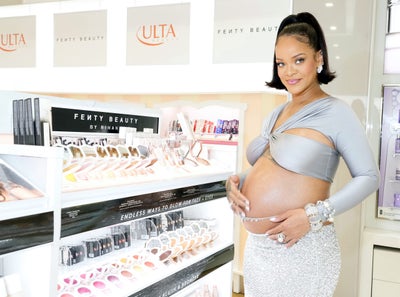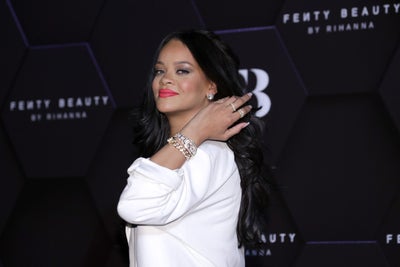How Rihanna Went From Nearly Bankrupt To Billionaire In A Decade

The story is as old as time. A beautiful, talented girl is discovered by a high-powered music executive. She then creates music the world loves and skyrockets into stardom. What’s different for Robyn Rihanna Fenty though is she did something that was totally unexpected for a pop star: became a billionaire from her business smarts, not her mega-hits, which she’d been churning out nearly for over fifteen years
With rapt attention, we watched Rih’s creeping, but wonderfully predictable, pivot. Signs of her evolution from singer to entrepreneur began showing themselves in 2017, the year her cosmetics brand Fenty Beauty launched. The makeup brand was an instant hit, largely because of her cemented status as a wildly popular beauty and style heroine. But unlike most celebrity-powered business endeavors (particularly makeup brands), it wasn’t a flash in the pan. The company turned the beauty industry on its head with a bold stance on inclusivity, offering 40 foundation shades without coaxing. It was a move no other brand attempted before, despite years of complaints from BIPOC customers who decried the lack of representation in foundation color matches.
“She completely shook everyone by simply validating her consumers’ feelings,” said Dominic Madori-Davis, a senior reporter at TechCrunch who covers startups and venture capital. She says she’s been watching Rihanna’s rise for years, and its incomparable.
“Rihanna has mastered the art of connecting with her audiences, whether it’s on stage, social media, or on store shelves,” Madori-Davis added.
Kourtney Ziegler, a tech entrepreneur, shared that a major component of Rihanna’s success is steeped in her ability to tap into intersectional audiences and make them feel seen.
“She comes from a background of poverty and has had to contend with racism, sexism, and other forms of discrimination in all avenues of life and business,” Ziegler said, also pointing out that early adversity may have played a role in Rihanna’s intention of amplify underrepresented groups. This is evidenced by not only Fenty Beauty’s shade ranges, but also Savage X Fenty, Rihanna’s lingerie brand, a company that regularly diverse model talent that spans ethnicity, disability, sexuality, and age.
Madori-Davis points out that Rihanna’s business success is a signal of a major shift in the entertainment industry, where artists have notoriously been commodified and left with little to no ownership of their work. Rihanna, unfortunately, learned that the hard way early on in her career.
“Oftentimes, fans think music artists are rich coming into the industry and that’s just not the case.”
In 2007, she released “Umbrella,” her breakout hit, and by that time had reportedly amassed a net worth close to $50 million from album sales, touring and endorsements. But shockingly, just two years later she was nearly bankrupt. Business Insider reports her income had dwindled to $2 million in 2009 due to misappropriation from her accounting team.
“Along with women in the industry like Beyoncé, Rihanna has really applied that boss mentality across all aspects of her career—she owns all her masters, which is really rare, especially for a female artist,” Madori-Davis said, referring to the masterful move Rihanna reportedly made when she exited her old label in 2012, acquired the original recordings to all of her songs. She then founded her own label imprint under RocNation. This allowed her to release music and receive a major portion of the royalties.
In the years following her last album, 2016’s Anti, Rihanna has been promising new music but nothing has come. Aurielle Brooks, an Atlanta-based entertainment attorney, understands why—it’s not as lucrative of a business move as people may think.
“Oftentimes, fans think music artists are rich coming into the industry and that’s just not the case,” Brooks said, whose clients include Lil Baby, Muni Long and Lil Durk. “The music industry can be unpredictable. As an artist you can release an album that is untimely, and it simply does not do well. Artists must stay consistent in their efforts of not only making music but also touring, endorsement deals, partnerships and other ventures. Focusing on entrepreneurship will allow Rihanna to alleviate the unpredictable aspects of the music industry and have more control over her own innovation.”
“She is really breaking the doors wide open for aspiring Black founders everywhere by showing them what’s possible all by being herself.”
George Acheampong, financial advisor and founder of investment advisory firm Capitalwize pointed out that celebrities are often boxed into certain spaces, which can work against them in business. However, this public image challenge was advantageous to Rihanna’s growth as an entrepreneur, he says.
“So much emphasis is placed on the art or talent of the artist as their main asset, but Rihanna was able to figure out early on that her greatest asset was leveraging her brand power into securing equity ownership and partnership with one of the worlds most prominent brands,” Acheampong said, alluding to her partnership with LVMH to launch her clothing brand. “As a result, she was able to achieve billionaire status by age 33, which is 16 years faster than Jay-z, whose label she ironically signed to at age 16. So arguably, he was able to chart the path for her to expedite her journey. Rihanna became an example of using artistry as a stepping stone to build real ownership and wealth.”
And that wealth is massive.
Forbes reports that Rihanna is now worth about $1.7 billion. An estimated $1.4B stems Fenty Beauty, in which she owns 50%. Another portion comes from her Savage x Fenty stake, with the lingerie company topping out at an estimated $270 million. The remaining part of the fortune is attributed to the years of her hard work as a musician.
Madori-Davis pointed out that Rihanna’s ascent is especially notable because of her unique positioning in business as a Black woman, a double minority that, even with her celebrity status could’ve stunted entrepreneurial growth.
“As Black women, we’re doubted so much, even as a celebrity,” she said. “Fenty Beauty reportedly only has one major investor, speaking to the level of trust she’s earned which is rare because often, we don’t get the benefit of the doubt from prospective LPs.” She’s right.
Black woman-led startups continue to be severely underfunded depsite being the largest and fastest growing group of entrepreneurs in the US. Crunchbase reported that only 2.3 of global venture capital funding went to female founders in 2020. It’s even uglier for Black women, who got a mere 0.35 percent of all VC funding that year.
Madori-Davis shared, “She is really breaking the doors wide open for aspiring Black founders everywhere by showing them what’s possible all by being herself.”
Source: Read Full Article

